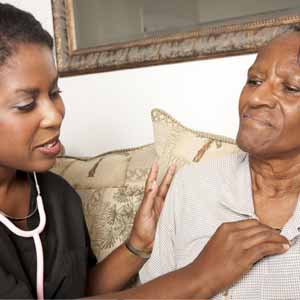We’ve all heard that “bad” cholesterol is linked with heart disease. The more bad cholesterol that you consume, the more likely you are to suffer from a heart attack, stroke, or another cardiovascular disease. And if you want to take steps at fighting these illnesses, you should avoid the bad cholesterol and consume more of the good kind.
But current research suggests that this might not be quite accurate. A team from the Royal College of Surgeons in Ireland (RCSI) recently published a paper in the journal, JAMA Internal Medicine. They found that the link between bad cholesterol and heart disease might not be as strong as we’ve long believed that it is.
Bad cholesterol, more accurately called low-density lipoprotein (LDL) has long had a reputation for being linked to heart disease. However, if the RCSI conclusion is correct, then LDL levels might not be the villain that was once thought. They arrived at this conclusion by looking at statins, a widely prescribed cholesterol medication designed to lower LDL levels. What they found was that even with lowered LDL levels, adults at high risk of heart disease saw inconclusive results with their health. Statins might not be as effective at helping prevent heart disease related events as once thought.

Statins designed to lower LDL, or bad cholesterol, might not be as effective as once thought, new research says.
This is new research, and as such, there’s still a need for more work to be done here. This is especially true because it runs counter to what we have traditionally come to know and to practice. There’s a chance that this isn’t accurate or that the findings were not scientifically accurate. However, because it was a legitimate study it should be given some attention and further examined. This will be an important point of reference for future researchers to start from and dive deeper into.
And because this is a still developing topic, it’s important to work with a doctor before you make any lifestyle changes. Changing up your diet is not a good idea at this point. If you are working on lowering cholesterol levels and avoiding cardiovascular disease, please work closely with a doctor so that you can keep yourself as healthy and safe as possible. A good diet, following medication advice, and getting exercise on the regular are all tried and proven ways of helping to control cholesterol levels, but all of this should be done with the help and guidance of a licensed medical professional. Please reach out to your doctor for more information here.
Those that suffer from heart disease often have a unique set of needs when compared to other senior citizens. Getting around the house and completing daily tasks might be a lot harder for someone who has had a stroke or heart attack than someone in relatively good health. This is especially true immediately after one of these events occurs. Depending on the severity, assistance might be needed for the rest of their life.
Finding a care solution that takes these unique needs into account is important. Additionally, ensuring that a care professional is familiar with the warning signs of stroke and heart attack can be a good precautionary measure that might be the difference between getting a loved one help right away or not. This is why using a fully trained professional that is familiar with what your family needs to thrive is so important.


Leave a Reply